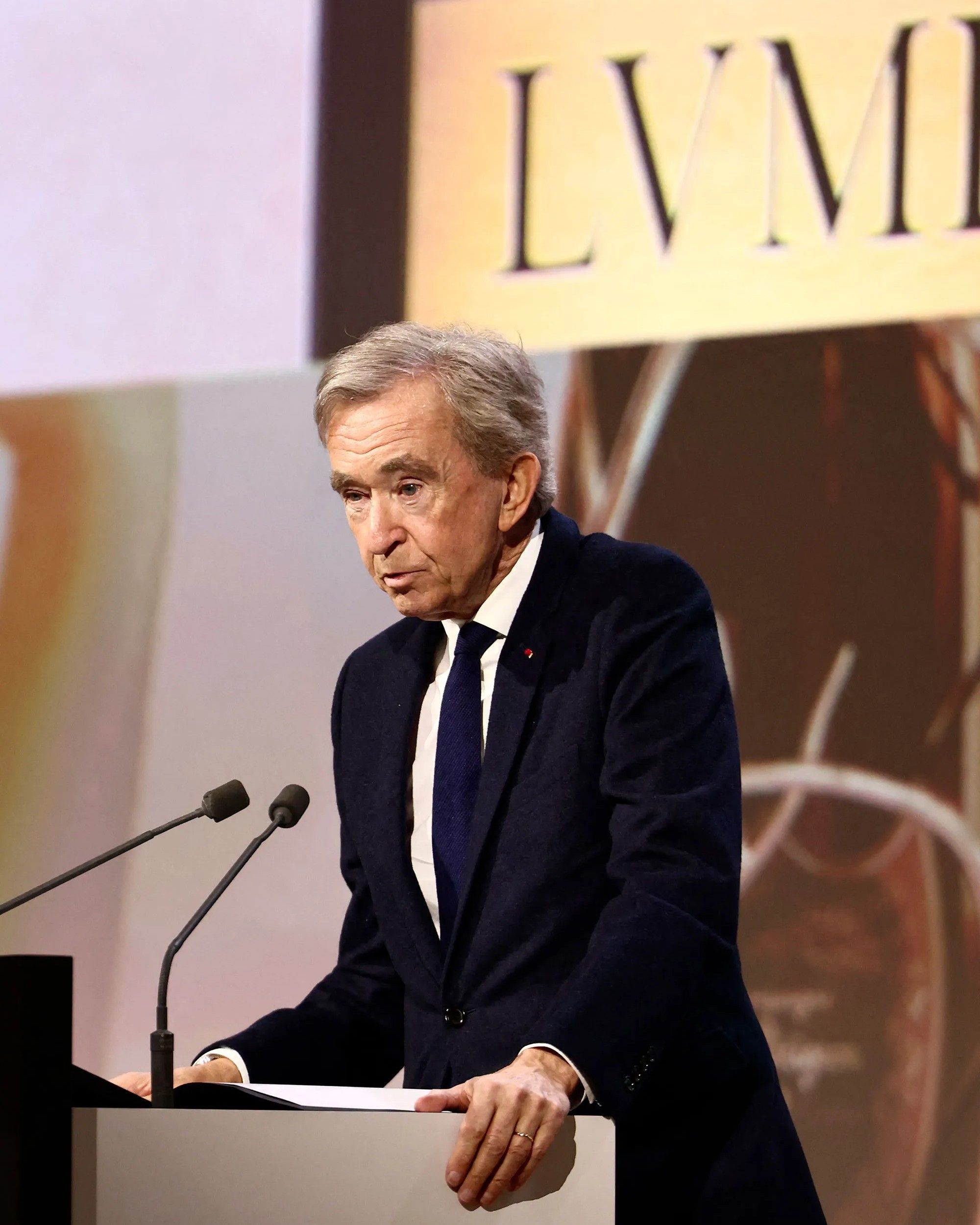
LVMH is no longer among the five most powerful stocks in Europe Luxury stocks fall
Until early 2024, Bernard Arnault was the richest man in the world, a title he lost in recent months, as the luxury magnate's name slipped to fifth place below Mark Zuckerberg, Jeff Bezos, and Elon Musk. The power of the LVMH CEO goes hand in hand with that of his company, which, until recently, was one of the largest publicly traded European companies, but now finds itself below fifth place. This Thursday, LVMH shares dropped another 3%, bringing the total decline to 25% throughout 2025. Now, the conglomerate’s market value (239 billion euros) is lower than Nestlé’s, which is around 280 billion euros. It’s a tough year for the French powerhouse behind Louis Vuitton, Dior, Fendi, and Bulgari: it is facing the worst stock drop since the 2008 financial crisis.
At the moment, two borders represent the biggest challenges luxury will have to face: America, with Trump's tariffs imposing heavy duties on all imports, and China, which is showing less and less interest in exclusive goods. Aside from Japan, the Asia-Pacific region may see further losses, which analysts estimate could reach 6.4%, with the China region already experiencing an 11% drop in sales last April. Although LVMH doesn’t only deal in fashion, but also other luxury goods such as jewelry and champagne, clothing and leather goods remain the most profitable divisions, even though they could suffer losses of up to 3.7% in the coming months. America, the group’s second-largest market after Asia, also continues to pose a threat to LVMH’s future, which is why the company has already warned investors about the next quarter, anticipating further pressures that will weigh on its market value. It must be said that LVMH is not the only major European luxury name struggling: alongside it are Chanel, which just reported its first drop in profits in five years, and Kering, which, with the exception of Bottega Veneta, continues to suffer losses on all fronts. The Prada Group and Hermès seem to be the last two standing, but to truly understand the state of fashion, we’ll have to wait for how the tariff situation unfolds.















































